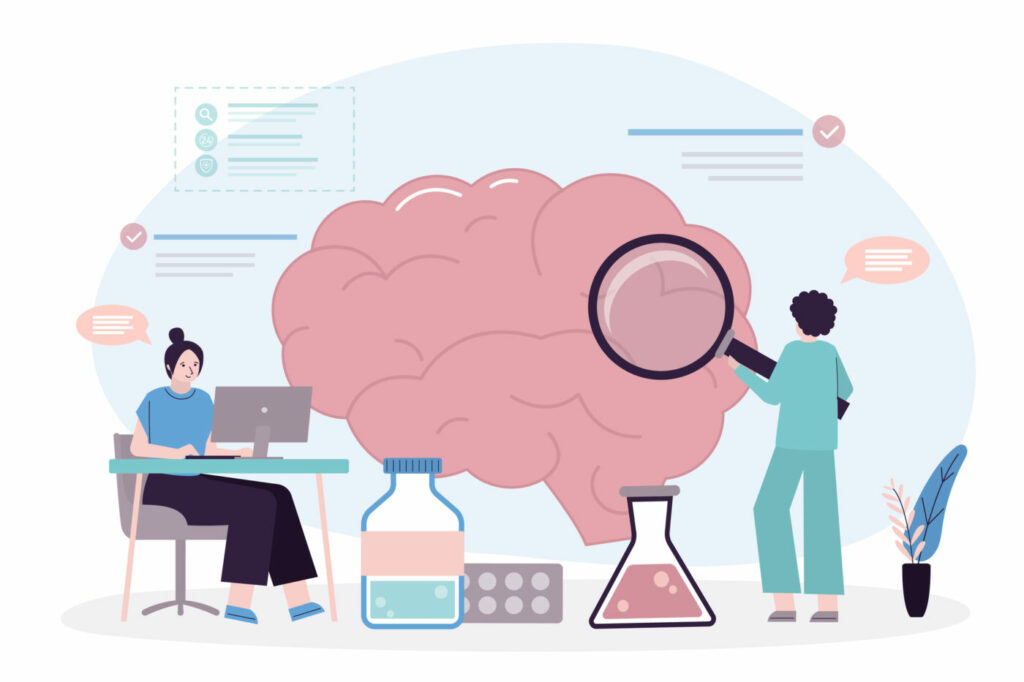Ketogenic Diet and Brain injuries

Author: PhD Andreia Torres
Brain injuries, whether caused by trauma, oxygen deprivation or neurological conditions, can have a profound impact on an individual’s life. Acute treatment involves care that an individual receives in the hospital immediately after their injury, while post-acute care encompasses long-term treatment for persisting side effects of brain injury. The type of care a survivor receives will depend on the severity of the injury, and the symptoms they present. It may involve counseling for emotional support, surgery to treat bleeding or reduce pressure from brain swelling, physical or occupational therapy, speech rehabilitation.
Unfortunately, many patients face long-term consequences of brain injuries including neurodegeneration, cognitive dysfunction, and comorbid neuropsychiatric illnesses [1]. Over the years, researchers have explored various treatment options to aid in the recovery process. One such avenue gaining attention is the ketogenic diet. In this blog post, we will delve into the potential benefits of the ketogenic diet for brain injuries.
Source of image: Daines, 2021
Understanding the Ketogenic Diet
The ketogenic diet is a low-carbohydrate, high-fat diet that has been primarily used for treating epilepsy. It involves drastically reducing carbohydrate intake and replacing it with healthy fats and moderate protein. This dietary approach puts the body into a metabolic state called ketosis, where it relies on ketones for energy instead of glucose. This is important because after a brain injury a hypometabolic stage begins. This stage is marked by glucose dysmetabolism and mitochondrial dysfunction, leading to the excessive production of reactive oxygen and nitrogen species. Carbohydrate restriction slows down this process, letting the brain recover faster.
Ketosis and Brain Health
The brain is a highly energy-demanding organ that relies mainly on glucose for fuel. However, in certain circumstances, such as during a brain injury, glucose metabolism can become impaired. This is where the ketogenic diet comes into play. By limiting carbohydrate intake, the body is forced to produce ketones, which can serve as an alternative energy source for the brain.
Under normal dietary conditions with available carbohydrate stores, the production of ketone bodies is low. However, if the body has low carbohydrate stores, the body enters into a state of ketosis, where the production of ketone bodies is upregulated. Endogenous ketone body production through a ketogenic diet and/or fasting takes 3–5 days to reach therapeutic blood ketone body levels [1].
However, exogenous ketone supplementation can achieve therapeutic levels of blood ketone levels within 30 minutes to 1 hour of administration. You can find powdered exogenous ketones at BeKeto´s website, as well as Medium Chain Triglycerides (MCT oils), a ketone body precursor.
Ketone salts and its benefits
Ketone salts typically comprise β-hydroxybutyrate bound to a salt such as sodium, potassium, or calcium and can be administered orally. Oral administration of ketone salts can rapidly raise circulating levels of β-hydroxybutyrate to 1.0 mM.
Ketones have anti-inflammatory and antioxidant properties, which can help reduce brain inflammation and oxidative stress associated with brain injuries. A study published in 2021 found that a ketogenic diet ameliorated the cognitive deficits in spatial and visual memory, as well as cellular changes in neurons and glial cells induced by the injury [2]
Ketones, specially β-hydroxybutrytate (BHB) can directly act as a specific histone deacetylase inhibitor (HDACi), altering gene expression at the epigenetic level. One effect of HDAC inhibition by BHB is the upregulation of brain-derived neurotrophic factor (BDNF) and neuronal regeneration [3].
Bibliography:
[1] Daines, SA. The Therapeutic Potential and Limitations of Ketones in Traumatic Brain Injury. Frontiers in Neurology, 12, 2021. DOI: 10.3389/fneur.2021.723148
[2] Har-Even M, Rubovitch V, Ratliff WA, Richmond-Hacham B, Citron BA, Pick CG. Ketogenic Diet as a potential treatment for traumatic brain injury in mice. Sci Rep. 2021 Dec 7;11(1):23559. doi: 10.1038/s41598-021-02849-0. PMID: 34876621; PMCID: PMC8651717.
[3] Wood T, Stubbs BJ, Juul SE. Exogenous Ketone Bodies as Promising Neuroprotective Agents for Developmental Brain Injury. Dev Neurosci (2019) 40 (5-6): 451–462.


